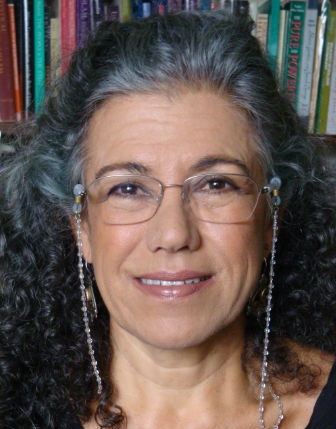- 05 Mar 2015
Israeli Feminism and the Question of Palestine
Abstract:
This lecture analyzes the failure of Israel’s Ashkenazi (Jewish, of European, Yiddish-speaking origin) feminist peace movement to work within the context of Middle East demographics, cultures, and histories and, alternately, the inabilities of the Mizrahi (Oriental) feminist movement to weave itself into the feminist fabric of the Arab world. Although Ashkenazi elite feminists in Israel are known for their peace activism and human rights work, from the Mizrahi perspective their critique and activism are limited, if not counterproductive. The Ashkenazi feminists have strategically chosen to focus on what Edward Said called the Question of Palestine—a well funded agenda that enables them to avoid addressing the community-based concerns of the disenfranchised Mizrahim. Mizrahi communities, however, silence their own feminists as these activists attempt to challenge the regime or engage in discourse on the Question of Palestine. Despite historical changes, the Ashkenazi-Mizrahi distinction is a racialized formation so resilient it manages to sustain itself through challenges rather than remain a frozen dichotomy.
About the Speakers

Scholar in Residence
Beatrice Bain Research Group
University of California, Berkeley
Smadar Lavie is an anthropologist, author, and activist specializing in the anthropology of Egypt, Israel and Palestine, with special emphasis on issues of race, gender and religion. She is a visiting professor at the Institute for Social Science in the 21st Century, University College Cork. She received her doctorate in Anthropology from the University of California at Berkeley (1989) and spent nine years as Assistant and Associate Professor of Anthropology at the University of California, Davis. Lavie authored The Poetics of Military Occupation (UC Press, 1990), receiving the 1990 Honorable Mention of the Victor Turner Award for Ethnographic Writing, and Wrapped in the Flag of Israel: Mizrahi Single Mothers and Bureaucratic Torture (Berghahn 2014). She also co-edited Creativity/Anthropology (Cornell UP, 1993) and Displacement, Diaspora, and Geographies of Identity (Duke UP, 1996). Lavie won the American Studies Association’s 2009 Gloria Anzaldúa Prize for her article, “Staying Put: Crossing the Palestine-Israel Border with Gloria Anzaldúa,” published in Anthropology and Humanism (2011). In 2013, she won the “Heart at East” Honor Plaque for lifetime service to Mizraḥi communities in Israel-Palestine.
Event Details
School of Humanities and Social Sciences
Nanyang Technological University
HSS-06-15,14 Nanyang Drive, Singapore 637332




